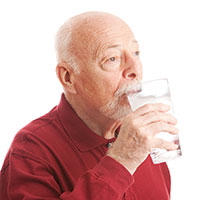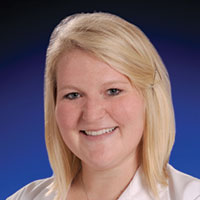Summer is here...time to get outdoors and enjoy the warm weather. But for seniors, the heat and sun can be dangerous if the proper precautions aren’t taken.
“Hot weather is a serious health concern for seniors. As we age, our bodies are less efficient at sweating, which is the body’s way of cooling. Also, the sensation of thirst decreases,” says Elizabeth Richmond, CRNP, a nurse practitioner in the Center for Successful Aging at MedStar Good Samaritan Hospital.
“To further complicate matters, many older adults have heat-related problems caused by prescription medications that limit the amount of fluids they can safely drink, electrolyte imbalances due to a salt-restricted diet, and chronic diseases that can impact blood flow or increase the possibility of dehydration,” she notes. Here are some tips that the elderly, as well as their caregivers, can use to make sure they have a safe summer:
Drink Lots of Water.
The rule of thumb is to drink half your body weight in ounces. However, be sure to check with your doctor to make sure your fluids aren’t restricted. In addition to water, Richmond recommends that seniors drink sweat replacement products containing salt and potassium.
Stay in Air-Conditioned Areas.
If you don’t have air-conditioning, try to get to a public building such as a mall or library. During heat waves, many communities in our area set up cooling centers for seniors and other vulnerable populations.
Dress for the Weather.
When it’s hot out, wear light-colored, loose-fitting clothes and a wide-brimmed hat. Put on sunglasses to protect your eyes from harmful UV rays and don’t forget the sunscreen.
Know the Risks of Hyperthermia.

Be cautious about abnormally high body temperatures—a condition known as hyperthermia. Heat stroke is an advanced form of hyperthermia that can be life-threatening at any age, but more so in older adults. Know the warning signs and get medical attention immediately if you or anyone you know is experiencing these symptoms:
- Body temperature greater than 104 degrees
- A change in behavior, such as acting confused or agitated
- Dry, flushed skin
- Nausea and vomiting
- Headache
- Heavy breathing or a rapid pulse
- Not sweating, even if it’s hot out
- Fainting
“Elderly individuals are more prone to heat stroke,” adds Richmond. “If your neighbors or loved ones are elderly, check on them regularly to ask how they are doing. Even over the phone you can usually tell if there is something wrong.”
For a free cool neck wrap and water bottle, complete this form or call 410-248-8322.

